Imagine being able to shop for quality clothing from around the world, all while supporting ethical fashion choices and fair labor. That’s what my curated list of 104 sweatshop–free clothing brands is all about! These companies are the cream of the crop in terms of their commitment to ethical standards and their dedication to quality.
Whether you’re in the mood for casual wear or luxury pieces, you’ll find a diverse array of styles and regions represented. More importantly, every brand featured on this list lets you shop with a clear conscience, knowing that your purchases are making a positive impact in the fashion industry.
Key Takeaways
- The list features sweatshop–free clothing brands committed to ethical fashion choices and fair labor.
- Each brand has been highly rated for its adherence to quality, fair trade, labor rights, and environmental impact.
- This list includes brands from diverse regions, offering a wide variety of styles from casual wear to luxury pieces.
- Shopping from these brands allows you to make a positive contribution to a more sustainable and equitable fashion industry.
- Supporting these brands allows you to shop with a clear conscience, knowing your purchases are aligned with ethical standards.
107 Sweatshop-Free Clothing Brands
- Rawganique – Organic cotton, linen & hemp clothing made in the USA & Europe.
- Outerknown – Sustainable men’s clothing made from recycled and eco-friendly materials.
- Pact – Organic cotton basics for men, women, kids, and babies made in Fair Trade-certified factories.
- Tentree – Casual, nature-inspired clothing that plants ten trees for every item purchased.
- ABLE – Women’s clothing, shoes, and accessories made by women who have overcome adversity. Lowest wage information published.
- Reformation – Trendy women’s clothing made from eco-friendly materials in a Fair Trade-certified factory.
- Patagonia – Outdoor clothing and gear made from recycled materials. Worn Wear program for repairs/recycling.
- Everlane – Transparent pricing and ethical factories for their modern basics and accessories.
- Kotn – Timeless clothing basics made from Egyptian cotton in fair trade-certified factories.
- Known Supply – Affordable organic cotton basics made in a Fair Trade factory. Makers spotlighted on website.
- Nisolo – Leather shoes and accessories made in ethical factories that pay living wages. Lowest wage information published.
- Eileen Fisher – Women’s clothing designed to be high quality and long-lasting. Take-back program for recycling.
- Thought – Contemporary basics and printed clothing made from sustainable fabrics like bamboo and organic cotton.
- People Tree – Fair Trade and organic clothing for women made by artisans around the world.
- Boden – Stylish clothing for the whole family made in ethical factories.
- Amour Vert – Stylish women’s clothing made in limited quantities from sustainable materials like organic cotton, Tencel, and recycled polyester.
- Tradlands – Menswear-inspired staples for women made from high quality materials in ethical factories.
- Mayamiko – Artisan-made clothing, accessories and homeware made from traditional African textiles. Provides job training for women.
- Passion Lilie – Unique, printed clothing for men and women made from natural fibers by artisans in India.
- Cozy Earth – Men’s and women’s loungewear made from organic bamboo in fair trade factories.
- Fair Indigo – Fair trade organic cotton clothing for men and women. Donates to education programs in Peru.
- GOEX – Graphic tees and basics for men made from recycled materials in Haiti. Supports living wages.
- Threads 4 Thought – Activewear and basics for men and women made from sustainable materials like organic cotton and recycled polyester.
- Toad&Co – Socially and environmentally conscious clothing for men and women made for the outdoors.
- Ably Apparel – Stain and odor resistant clothing made from eco-friendly materials.
- United By Blue – Outdoor-inspired clothing that removes a pound of trash from oceans and waterways for each product sold.
- Thought – Contemporary sustainable basics and printed clothing made from bamboo and organic cotton.
- Boden – Stylish clothing for men, women and kids made in ethical factories. 7
- Organic Basics – Sustainable underwear and basics made from organic cotton in ethical factories.
- Krochet Kids – Artisan-made clothing and accessories. Provides job opportunities in Uganda and Peru.
- Beaumont Organic – Organic cotton womenswear made in Portugal. GOTS certified.
- Whimsy + Row – Sustainable dresses, jumpsuits, and separates made from deadstock fabric, linen, and Tencel in LA.
- Christy Dawn – Bohemian dresses and clothing made from deadstock fabric in LA.
- Mara Hoffman – Colorful, printed clothing made in NYC from sustainable materials like organic cotton, Tencel, and hemp.
- Girlfriend Collective – Size-inclusive activewear made from recycled plastic bottles. Take-back program for recycling.
- Alternative Apparel – Casual clothing basics made from organic cotton, recycled materials, and hemp.
- Cuyana – Minimalist clothing and accessories focused on fewer, better quality pieces. Produced in ethical factories.
- Veja – Eco-friendly sneakers made from organic cotton, wild rubber, and recycled plastic bottles in fair trade factories.
- Boyish Jeans – Sustainable denim made from organic cotton and recycled materials in ethical factories.
- Sezane – Parisian-inspired clothing made from eco-friendly materials like organic cotton and Tencel.
- Sotela – Size-inclusive clothing made from natural, eco-friendly fibers in California.
- Hackwith Design House – Made-to-order womenswear sewn in Minnesota from sustainable fabrics.
- Mate the Label – Organic cotton basics for men and women made in Los Angeles.
- BackBeat Co. – Sustainable basics and swimwear made from hemp, Tencel, and recycled materials in ethical factories.
- Cotopaxi – Outdoor gear and clothing made from recycled materials. Gives back to global causes.
- Quince – Affordable luxury clothing made from materials like washable silk, Mongolian cashmere, and European linen.
- Prana – Activewear and outdoor clothing made from recycled wool, organic cotton, hemp, and recycled polyester.
- Athleta—B Corp certified activewear made from sustainable materials like recycled nylon and polyester. Sixty percent of products are made with sustainable fibers.
- Madewell – Denim and clothing made in Fair Trade Certified™ factories. Offers jeans recycling program.
- Levi’s – Denim brand using cottonized hemp and organic cotton. WellThread collection is fully recyclable.
- Warp + Weft – Size-inclusive, sustainable denim made from organic cotton and recycled materials in ethical factories.
- Summersalt – Affordable, size-inclusive swimwear made from recycled materials. Manufactures in WRAP certified factory.
- Boden – British clothing brand with stylish designs for men, women and kids. Partners with ethical factories and uses some organic cotton.
- Prana – Outdoor and activewear clothing made from organic cotton, hemp, recycled wool and recycled polyester. Gives back 1% for the planet.
- Naadam – Affordable cashmere sweaters and clothing ethically made in Mongolia. Supports herding communities.
- Cuyana – Timeless, high-quality clothing, and accessories made in ethical factories around the world. Focus on fewer, better things.
- Sezane – French-inspired clothing made from eco-friendly materials like organic cotton and Tencel in Europe. Gives back to causes supporting children.
- Mara Hoffman – Sustainable luxury clothing in bold prints and colors made in NYC. Uses organic, recycled and regenerated materials.
- Filippa K – Minimalist Scandinavian clothing made to last. Uses sustainable materials and has a take-back program for recycling.
- Veja – Eco-friendly sneakers made from organic cotton, wild rubber, rice waste and other sustainable materials in Brazil.
- Stella McCartney – Luxury vegan clothing and accessories made in ethical factories in Europe. Uses recycled and organic materials.
- Nudie Jeans – Organic and fair trade denim with free repairs for life. Take-back program for recycling.
- Allbirds – Sustainable sneakers and activewear made from merino wool, Tencel, and sugarcane. Certified B Corp.
- Organic Basics – Sustainable underwear and basics made from organic cotton in ethical factories.
- Boody – Affordable bamboo basics and underwear made in WRAP-certified factories.
- Kotn – Ethically made basics using Egyptian cotton. Invests in education programs in the Nile Delta.
- Cotopaxi – Colorful outdoor gear made from recycled materials. Gives back to global causes.
- Armedangels – Sustainable fashion made from organic cotton, recycled materials and Tencel in Europe. GOTS and Fairtrade certified.
- Whimsy + Row – Eco-conscious dresses and separates made from deadstock fabric, linen, and Tencel in LA.
- Christy Dawn – Bohemian dresses and clothing made from deadstock fabric in ethical factories in LA and India.
- Boyish Jeans – Sustainable denim made from organic cotton and recycled materials in ethical factories.
- Mate the Label – Organic cotton basics for men and women are ethically made in Los Angeles.
- Nisolo – Leather shoes and accessories ethically made in Peru. Certified B Corp.
- Hackwith Design House – Made-to-order clothing sewn in Minnesota from linen, Tencel and deadstock fabrics.
- Sotela – Size-inclusive, made-to-order clothing using natural fibers. Ethically made in California.
- Thought – Sustainable clothing made from bamboo, organic cotton, and hemp. Gives back to global causes.
- Beaumont Organic – Contemporary organic cotton womenswear made in Portugal. GOTS certified.
- Krochet Kids – Non-profit lifestyle brand providing job opportunities to women in Uganda and Peru.
- Mayamiko – African-inspired clothing and accessories made from traditional textiles by artisans in Malawi. Provides job training for women.
- Passion Lilie – Artisan-made, eco-friendly clothing using hand-printed textiles. Empower workers in India.
- Cozy Earth – Soft, cooling bedding and pajamas made from bamboo in ethical factories.
- Fair Indigo – Fair trade, organic cotton clothing. Donates to education in Peru.
- GOEX – Graphic tees and clothing made in Haiti. Supports orphan prevention and living wages.
- Toad&Co – Socially conscious, eco-friendly clothing for the outdoors. 1% for the Planet member.
- Ably Apparel – Stain/odor-resistant clothing made from eco-friendly materials. Gives 10% to charity.
- Threads 4 Thought – Sustainable basics using organic cotton and recycled polyester. Gives back to the International Rescue Committee.
- Yes Friends – Unisex clothing made from GOTS certified organic cotton in a Fair Trade factory in India.
- CHNGE – Eco-friendly graphic tees and hoodies made in ethical factories. Gives back to causes.
- Etiko – Organic, vegan, and fair trade clothing, shoes, and accessories made with natural materials.
- Plant Faced Clothing – Vegan streetwear made in sweatshop-free conditions. Uses eco-friendly materials.
- Honest Basics – Affordable organic cotton basics for men and women made transparently in Fair Trade factories.
- Ecoer Fashion – Sustainable womenswear using natural dyes and traditional artisan techniques in India.
- Liz Alig – Unique clothing made by artisans around the world using traditional techniques.
- Harvest & Mill – Organic cotton basics grown and sewn in the USA.
- Harly Jae – Eco-conscious jumpsuits and separates made from Tencel, linen and deadstock fabrics in Vancouver.
- Valani – Artisan-made clothing using blockprint and natural dyes in India. Empowers women.
- TomboyX – Gender-inclusive underwear and clothing made from eco-friendly materials like organic cotton and Tencel.
- Lucy & Yak – Playful, unisex clothing including organic dungarees made ethically in India. Offers 10% student discount.
- Big Bud Press – Vibrant, size-inclusive unisex clothing made in ethical factories in LA. Uses sustainable fabrics.
- Riley Studio – Gender-free, seasonless wardrobe staples made from recycled and organic materials.
- Lonely Kids Club – Playful unisex clothing and accessories ethically made in Australia.
- MX Apparel Design – Genderless clothing made in Philadelphia. Uses sustainable fabrics and trans/nonbinary models.
- WILDFANG – Inclusive clothing with tomboy vibes made in ethical factories. Gives back to LGBTQ+ causes.
- Royal Apparel – Wholesale blank apparel and custom clothing made in USA. Offers organic
These brands prioritize ethical manufacturing practices and avoid using sweatshops in their supply chains. They use sustainable materials like organic cotton, hemp, and recycled fabrics. Many are also Fair Trade certified or B-Corp certified, further demonstrating their commitment to social and environmental responsibility.
The Rising Trend of Ethical Fashion
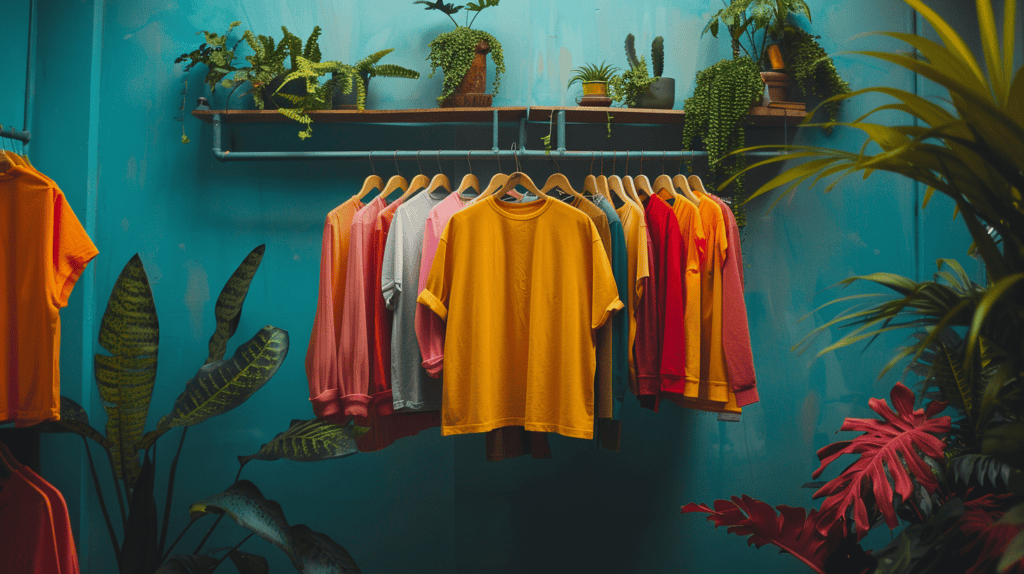
Change is evident in the realm of what we wear, and it rightly reflects in the growth and acceptance of ethical fashion. Our traditional roadmaps of style are twisting and turning to align with the ethos of humanity and earth-friendliness. Fashion, which up until now was merely seen as a medium of expressing one’s identity, is translating into a stronger force that voices equality, sustainability, and transparency.
Understanding Ethical and Sustainable Fashion
Before we delve deeper, let’s understand what ethical and sustainable fashion truly denotes. Essentially, it’s not just about what meets the eye or feels smooth against your skin. It expands far beyond aesthetics and comfort to encompass an array of concepts aligned with equality, sustainability, and fairness. Ethical fashion primarily seeks to improve work conditions and ensure a fair wage for workers. Sustainable fashion, on the other hand, focuses on utilizing eco-friendly or sustainable materials, thus reducing harm to the environment.
The Response of the Fashion Industry to Ethical Practices
The notion of ethical and sustainable fashion is not limited to a few niche corners of the fashion industry anymore. It has seeped into mainstream sensibility, thanks in part to brands recognizing and responding to this need. Slow fashion has become a celebrated term, with leading fashion labels vouching for it through their progressive policies and measures. The number of sustainable fashion brands willing to shed their former skins of unsustainable practices has seen an impressive surge in the recent past.
How Consumers are Driving the Change
At the end of the day, the industry goes where the consumer directs it to. The growing awareness among consumers regarding their responsibility towards a fair world has significantly fueled this shift. A desire for transparency in where and how their clothing is made, a growing allegiance towards ethical clothing, and an appreciation for sustainable materials – are the powerful forces driving the change in the fashion industry today.
| Aspects | Consumer Action |
|---|---|
| Transparency | Inquiring about source and production methods |
| Support for Ethical Clothing | Choosing brands endorsing fair wages and work conditions |
| Sustainable Materials | Preference for environmentally-friendly or recycled materials |
To sum up, the trend of ethical and sustainable fashion is like a beacon of hope in a world grappling with inequality and environmental deterioration. It’s not just a trend anymore, but a movement; a necessary shift that we, as consumers, creators, and mere inhabitants of this planet, need to foster.
Experiential Shopping: The New Wave
In a digital era where online shopping seemingly dominates, the allure of retail is not lost. The trend of experiential shopping is surfacing as a game changer, paving a way for a more tangible, dynamic shopping experience. Customers yearn for an interactive, immersive journey where they can touch, feel, and understand the products they value.
The smells, the ambiance, the textures, and patterns—there’s a unique magic associated with exploring physical stores that transcends the confines of a screen-based engagement.
This doesn’t spell the end of online shopping, rather, it highlights the importance of a harmonious online and in-person shopping experience that many customers cherish.
McKinsey’s The State of Fashion report supports this shift towards experiential shopping, reflecting a global increase in what’s known as social shopping. With consumers taking more interest in the purchases they make, it’s clear that this isn’t merely a passing fad but an evolving aspect of the modern customer journey. Retail stores provide invaluable opportunities for customers to directly interact with products, allowing them to fit, feel, and fully connect with items before making a purchase.
| Shifts in Consumer Behavior | Percentage Shift |
|---|---|
| Increased In-person Shopping | 30% |
| Increased Online Shopping | 50% |
| Preference for Experiential Shopping | 20% |
The above data reflects the shifts in consumer habits, with a surprising resurgence of in-person shopping and a growing preference for experiential shopping. It’s evident that retailers need to think beyond traditional selling methods and create an environment that promotes engagement, exploration, and an overall enriching shopping experience.
The move towards experiential shopping ultimately paves the way for consumers to make more informed, thoughtful purchasing decisions. It offers them an opportunity to explore ethical, sweatshop–free clothing brands, and make fashion choices that resonate with their personal values and beliefs.
Sweatshop-Free Clothing Brands List
As we delve into the world of ethical fashion, we find numerous brands committed to disrupting the status quo with their sustainable practices, use of organic cotton, and fair trade-certified production process. Let’s navigate this ethical brand landscape together, spotlighting a few renowned names that are not just creating excellent clothing but are also making significant strides in promoting ethical working conditions and sustainable production methods.
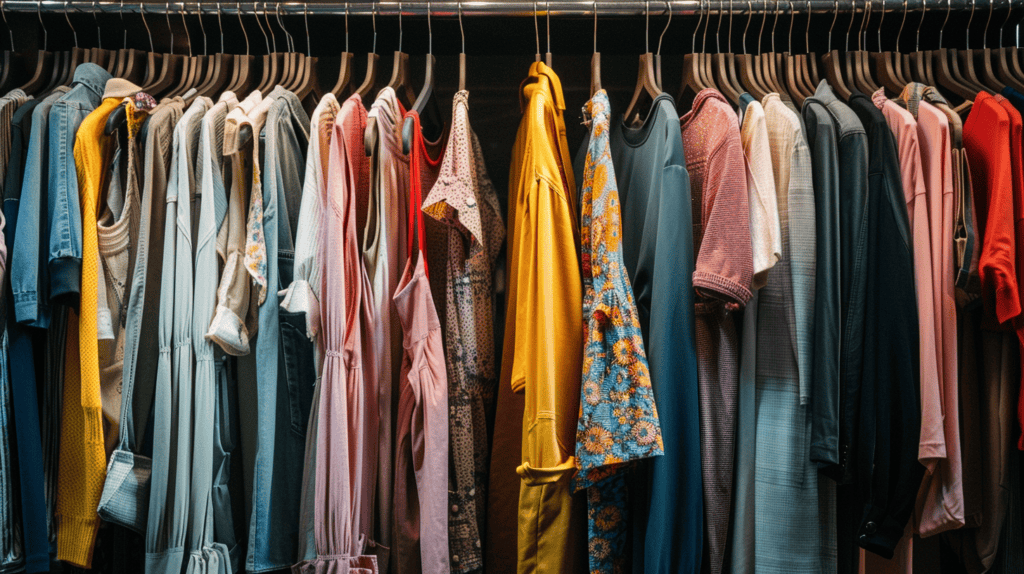
Navigating the Ethical Brand Landscape
The journey to find your perfect ethical clothing brand can seem daunting, with an array of options out there. It’s not just about aesthetic appeal; it’s about understanding what the brand stands for, what it prioritizes in its production process, and whether its values resonate with yours. Importantly, it’s key to pay attention to whether the brand uses eco-friendly materials like certified organic cotton, and if it’s upheld as a fair trade certified brand.
Brands That Are Making a Difference Globally
Fortunately, the quest for quality, sweatshop-free clothing is made easier with brands like Girlfriend Collective, known for its inclusivity and dedication to eco-friendly practices. Similarly, sustainable brand Mara Hoffman stands out, consistently adopting mindful practices with a range of eco-friendly materials. As we further descend into the heart of ethical fashion, we encounter brands like Nudie Jeans, a pioneer in sustainable practices, renowned for its use of 100% organic cotton denim, transparent production, and repair services — all housed under one roof. Thus, they set the bar high, demonstrating that it is possible to combine fashion with ethics.
The Importance of Fair Trade Certification
As discerning consumers, our choices go beyond the style and fit of clothing. Today, ethical considerations, such as supporting fair trade clothing, play an overwhelming part in our purchasing decisions. Being assured of sustainable and ethical practices is not a niche interest anymore – it’s a vital demand. That’s where Fair Trade Certification comes into play.
This crucial stamp of trust ensures that workers involved in creating our clothes are paid a fair wage and toil in decent conditions. Fair trade-certified factories hold themselves to a higher standard, enforcing humane working conditions, supporting community development, and helping to combat child labor, among other things.
Brands with this certification are not only responsible—they are revolutionaries, paving the way for a more equitable fashion industry. Among these responsible clothing brands is PACT. Best known for its use of fair trade certified organic cotton, PACT combines a passion for ethical production with sustainable materials. Brands like PACT allow you and me to support fair labor practices while indulging in sustainable and ethical fashion. Let’s explore the impact that these ethical warriors have on the clothing industry.
| Brand | Main Sustainable Materials Used | Fair Trade Certified Factories |
|---|---|---|
| PACT | Organic Cotton | Yes |
| People Tree | Organic Cotton, EcoVero (sustainable viscose) | Yes |
| Patagonia | Recycled Polyester, Recycled Nylon | Yes |
The table above showcases just a few examples of brands leading the charge in the fair trade revolution. As consumers, our purchasing power holds the key to change. Together, by saying yes to fair trade, we can make fashion fairer for all.
Sustainable Materials in Fashion
Today, the heart and soul of ethical and sustainable clothing lies in the usage of sustainable materials, a powerful driving force behind the ever-evolving world of fashion. With the rise of eco-friendly clothing brands, companies are progressively focusing on developing and utilizing sustainable and recycled materials to minimize environmental impact. When we opt for brands that prioritize sustainability, we actively contribute to a more eco-conscious future.

Innovations in Eco-Friendly Fabrics
Think of sustainable fashion, think of innovative, eco-friendly fabrics. Yes, it’s no longer about traditional fabrics that harm the environment, but about sustainable fabrics that hold immense potential. Innovations in textile manufacturing have led to the use of fabrics like recycled polyester, made from PET bottles, and grown materials like bamboo that have a significantly lower eco footprint.
In the following table, I’ve listed out some popular eco-friendly fabrics that form the backbone of sustainable fashion and the eco-friendly clothing brands that have adopted them:
| Eco-Friendly Fabric | Advantages | Brands Using the Fabric |
|---|---|---|
| Recycled Polyester | Decreases dependency on petroleum, consumes less water, energy and produces less CO2 compared to virgin polyester | Patagonia, Adidas, H&M |
| Bamboo | Grows quickly without pesticides, absorbs more CO2 than hardwood trees, uses less water compared to cotton | Eileen Fisher, Boody Eco Wear |
The Role of Organic Cotton in Ethical Fashion
The production of conventional cotton involves harmful chemicals and a lot of water, which can be hazardous to both our planet and the people involved in its production. Here’s where organic cotton steps in. Free of toxic pesticides and fertilizers, organic cotton is a powerful ally in promoting environmental health and sustainability. It uses significantly less water than regular cotton, making it a preferred choice for eco-conscious brands and consumers alike.
Brands like Patagonia and People Tree have embraced organic cotton, transforming it into a range of beautiful, sustainable apparels, all made with organic integrity and ethical responsibility. So, next time when you’re shopping, give a thought to the clothes you buy. Not just for the style or the brand, but for the materials they’re made with – because the revolution of sustainable fashion starts with you.
North America’s Pioneers in Ethical Clothing
The apparel industry in North America has been shaped by some incredible ethical and sustainable fashion brands that continue to pave the way for a more responsible future. These trailblazers have been instrumental in pushing the boundaries of what is possible when commitment to sustainability and ethical practices are placed at the heart of a clothing brand.
Two such pioneers that deserve special mention are Patagonia and Girlfriend Collective. Known for their innovative approaches and steadfast commitment to ethical and sustainable practices, these ethical clothing companies are the embodiment of the impactful change that fashion can bring about when done responsibly.
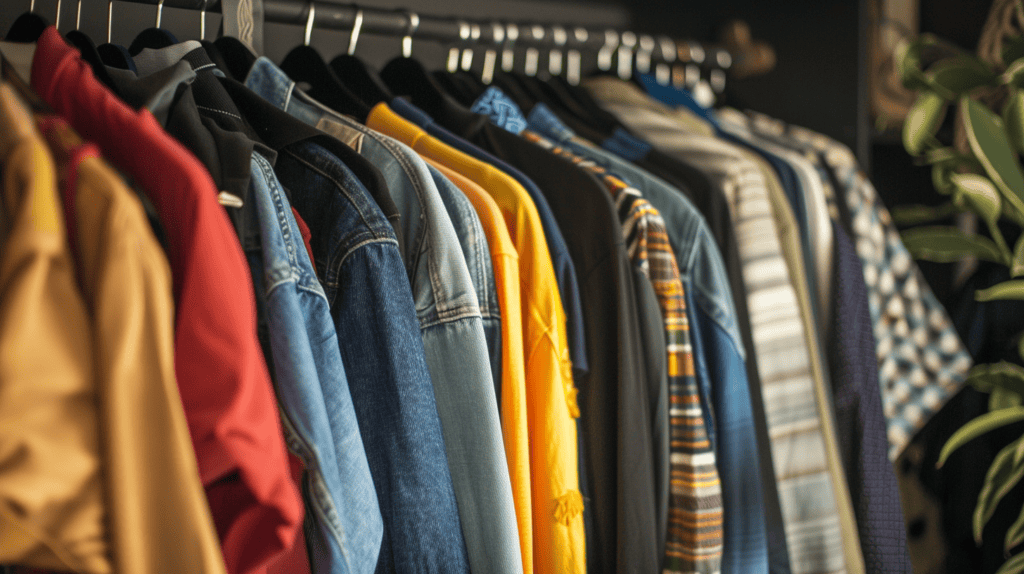
Patagonia is a pioneer in the field of outdoor clothing and gear. Their unwavering commitment to ethical practices, encompassing everything from fair labor to environmental conservation, makes them a beacon for other brands to follow. Patagonia has always been centered around the ethos that a love for wild and beautiful places demands participation in the fight to save them.
On the other hand, Girlfriend Collective. They’ve shattered the glass ceiling for affordable ethical clothing brands, by maintaining a delicate balance between cost, quality, and ethics. They’ve proven that responsible fashion doesn’t have to come with exorbitant price tags. Their commitment to transparency, representation, and functional beauty showcases their dedication toward making the luxury of ethical clothing accessible to all.
These brands not only offer high-performance, quality apparel but are also deeply committed to their missions of environmental conservation and fair labor standards. They demonstrate that companies can enjoy substantial growth and profitability without compromising on their ethical and sustainable viewpoints.
So, whether you’re passionate about the great outdoors or prefer comfortable, everyday wear, choose to support these ethical clothing brands in North America and make your fashion choices count towards a greener, more equitable world.
The Impact of Supply Chains in Fashion
Today, the significance of supply chains in the fashion landscape can no longer be sidestepped. As ethical brands and sustainable clothing companies garner more public attention, there’s a marked shift towards infusing transparency and accountability into production mechanisms. Having an ethically sound supply chain ensures more than just a clear conscience for a brand; it’s a testament to its commitment towards bettering the environmental, economic, and societal dimensions of fashion.
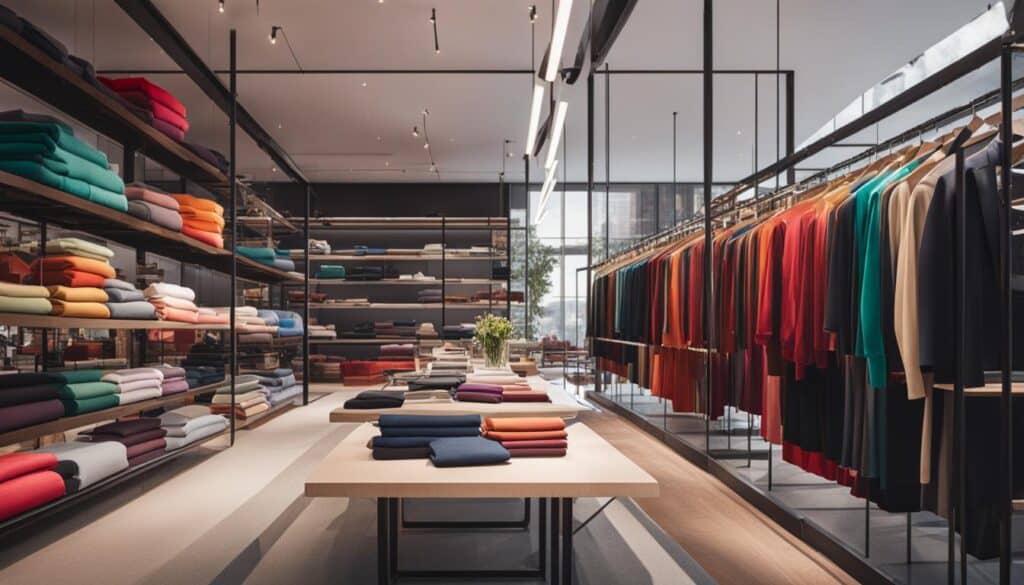
Transparency and Accountability in Production
Transparency in business operations, especially in production, is integral to the sustainable ethos that an ethical brand represents. Clothing companies need to ensure that each cog in the wheel, from raw material sourcing to the final product, adheres to stringent ethical standards. This process also includes regular inspections and audits of suppliers, thereby ensuring that the living wage and fair labor rules are upheld. This transparency allows consumers to make informed decisions, promoting ethical consumerism.
Logistics of Ethical Sourcing
When it comes to the logistics of ethical sourcing, a harmonious coordination between different factions of the supply chain becomes incredibly significant. Continual commitment to ethical principles, rigorous communication with stakeholders, and transparency in operations are all part and parcel of maintaining an ethical clothing brand’s integrity.
| Brand | Transparent Supply Chain | Ethical Sourcing Practices |
|---|---|---|
| Everlane | Yes, with detailed cost breakdowns | Commits to using sustainable materials |
| Patagonia | Yes, with the Footprint Chronicles | Continual commitment to work ethics |
| People Tree | Yes, with a detailed ‘Our Producers’ section | Supports artisan producers in developing countries |
The move towards a more transparent and accountable supply chain is set to revolutionize the way we perceive fashion. As we evolve to become more conscious buyers, it is heartening to see brands maintain a standard of excellence not just in their products, but in their pledge towards creating a sustainable future as well.
Ethical and Sustainable Practices Across Continents
The transformation of fashion into a more conscious industry has been remarkable of late. Wonder how? As a response to the rapidly growing movement for ethical and sustainable practices, numerous sustainable clothing brands are emerging worldwide to value people and the planet simultaneously.
It’s heartening to see how these brands are spreading their roots across different continents, breaking boundaries and conventional norms. Their common denominator? A commitment to bring about a change in the industry by advocating for ethical and sustainable apparel. And in turn, help people to find more sustainable brands that align with their core values.
| Brands | Continents | Speciality |
|---|---|---|
| Brandy Melville | North America, Europe | Eco-friendly & Inclusive Sizes |
| Mara Hoffman | North America, Asia | Sustainable Materials |
| Eileen Fisher | North America, Europe | Sustainable Manufacturing |
| ASOS | Europe, Asia | Affordable Ethical Fashion |
| Patagonia | North America, Europe, Asia | Responsible Sourcing |
These global sustainable fashion pioneers, with different specialties and unique propositions, are not only enhancing their businesses but are also contributing to a responsible fashion industry – one that brings forth social and environmental benefits.
Consumers today are increasingly informed and care about their purchase decisions. They seek out sustainable clothing brands to help solve environmental and social challenges. It’s this demand that’s driving brands to produce conscious clothing, ensuring that every thread woven carries the values of ethicality.
While we have made considerable strides in establishing a global ethical clothing line, there’s still a long way to go. As consumers, it’s our responsibility to support and drive the change we wish to see in fashion – a change that respects the individual, the society, and most importantly, our home, the Earth.
Ethically Made: From the USA to the Global Market
When we speak of ethical fashion, it’s integral to mention the positive footprint being made by clothing brands in the USA. These brands, made in the USA, are not only strengthening local economies but also influencing the global market with their dedicated commitment to ethical and sustainable practices. An increasing number of sweatshop free clothing brands are venturing beyond national boundaries, creating a significant wave in the international fashion arena.
Sweatshop-Free Brands with a Global Reach
The appeal of ethical clothing brands is not contained within the borders of one country. Rather, their ethos and values capture a universal sentiment, veering towards conscious consumption and responsibility towards our environment. These brands, ethically made in the USA, testify to the possibility and viability of a clothing brand being locally made while also having a dominant presence in the global market.
The Story of Locally Made and Globally Sold
As a conscious consumer, it’s encouraging to see how domestic brands have a market that extends beyond geographical boundaries. Locally made brands, with their commitment to producing clothing that is ethically made, have successfully woven their story on a global platform. Their growth globally underscores the significance of sustainability and ethical principals in the broader international fashion landscape.
| Brand | Origin | Global Presence |
|---|---|---|
| PACT | USA | Worldwide |
| Patagonia | USA | Europe, Asia, Australia, South America |
| Everlane | USA | Worldwide |
| Reformation | USA | Europe, Australia |
Recognising brands that are making a substantial difference, both in local and global markets, encourages them to persist in their mission and inspires other brands to follow in their footsteps.
Conclusion on Sweatshop-Free Clothing Brands List
As our exciting expedition of 107 sweatshop-free clothing brands comes to an end, you can certainly see the abundance of options for eco-friendly clothing and ethical fashion. The fashion waves have shifted dramatically, flooding the industry with responsible clothing brands dedicated to respect for both the environment and their workforce.
By supporting these best sustainable clothing brands, we are cultivating a culture of conscious consumption. Every purchase is a declaration against the exploiting practices of fast fashion. Put simply, when we choose these designers, we make voting with our wallets count for something powerful – a stand against unjust industry norms.
So, treat yourself to a guilt-free shopping trip backed by this extensive list of commendable brands. Revel in the well-crafted, high-quality selections offered by labels that genuinely care. By preferring ethical and sustainable clothing, we not only uplift our wardrobe but also contribute positively towards fashion’s future. Together, let’s bring about a revolution, one sweatshop-free purchase at a time.
FAQ on Sustainable Clothing Brands
Q: What is an ethical clothing brand?
A: An ethical clothing brand is a company that designs and make clothes in a way that is considerate to its workers and the environment. These brands often use organic or recycled materials, ensure that their products are made in ethical factories, and avoid exploitation practices commonly associated with fast fashion.
Q: What are some clothing companies known for being ethical and sustainable?
A: Brands like Patagonia, Eileen Fisher and People Tree are recognized as ethical and sustainable clothing brands. They make sustainable clothing using organic and recycled materials, and they ensure their products are made in ethical factories. Additionally, these companies often have transparency reports available to the public.
Q: Why should I choose to purchase from an ethical clothing company instead of a more popular fast fashion brand?
A: Choosing to purchase from an ethical clothing company can help reduce the negative impact fast fashion brands have on the environment and people. Many fast fashion companies exploit workers and use manufacturing processes which are harmful to the environment. On the other hand, ethical clothing companies make clothes with sustainable materials and ensure that their workers are treated fairly.
Q: In what ways do ethical and sustainable fashion brands differ from traditional clothing brands?
A: Traditional clothing brands, especially fast fashion ones, often prioritize speed and low costs, leading to compromise on worker rights and environmental concerns. On the contrast, ethical and sustainable fashion brands prioritize make sustainable clothes, using organic or recycled materials and ensure that their products are produced in ethical factories.
Q: Where can I find more sustainable brands to shop from?
A: There are numerous online platforms which have curated lists of sustainable brands. These include websites like Good On You, Ethical Fashion Guide, and The Good Trade. They feature high-quality clothing from sustainable brands. You can also check if a brand is sustainable by looking at their practices on their official website.
Q: What do we mean when we say a brand is definitely ‘sweatshop free’?
A: When a brand is ‘sweatshop free’, it means that it does not exploit its workers. Workers are paid fair wages, work in safe conditions, and are not forced into overtime. Sweatshop free brands often have transparency reports proving they adhere to these practices.
Q: How can I tell if a clothing label is really ethical and sustainable?
A: To tell if a clothing label is ethical and sustainable, look for brands that provide information about where and how their clothes are made, such as the materials used, the factories where the clothing is made, and the wages and working conditions of the people making the clothes. Brands that are truly ethical and sustainable will have this information accessible and be open to scrutiny.
Q: How do eco-friendly clothing brands make clothes?
A: Eco-friendly clothing brands use sustainable practices in their production process. They use organic or recycled materials, tend to have products made to order to reduce waste, and ensure their products are made in safe, ethical factories. Some also adopt a circular fashion model, where materials are reused or recycled rather than being sent to landfills.
Q: What does it mean when a product from a sustainable brand is described as ‘made to order’?
A: ‘Made to order’ means that the product is made once the customer places their order. This model helps reduce waste as products are not made in excess. Furthermore, it ensures that each piece is made with attention to detail and quality, contributing to the longevity of the garment.
Q: Are there any affordable sustainable clothing brands?
A: Yes, there are plenty of affordable sustainable clothing brands. While some eco-friendly brands can be expensive due to cost of sustainable materials and ethical production, there are brands with more affordable ranges. These include Alternative Apparel, Everlane and PACT which offer affordable, ethical and sustainable clothing.

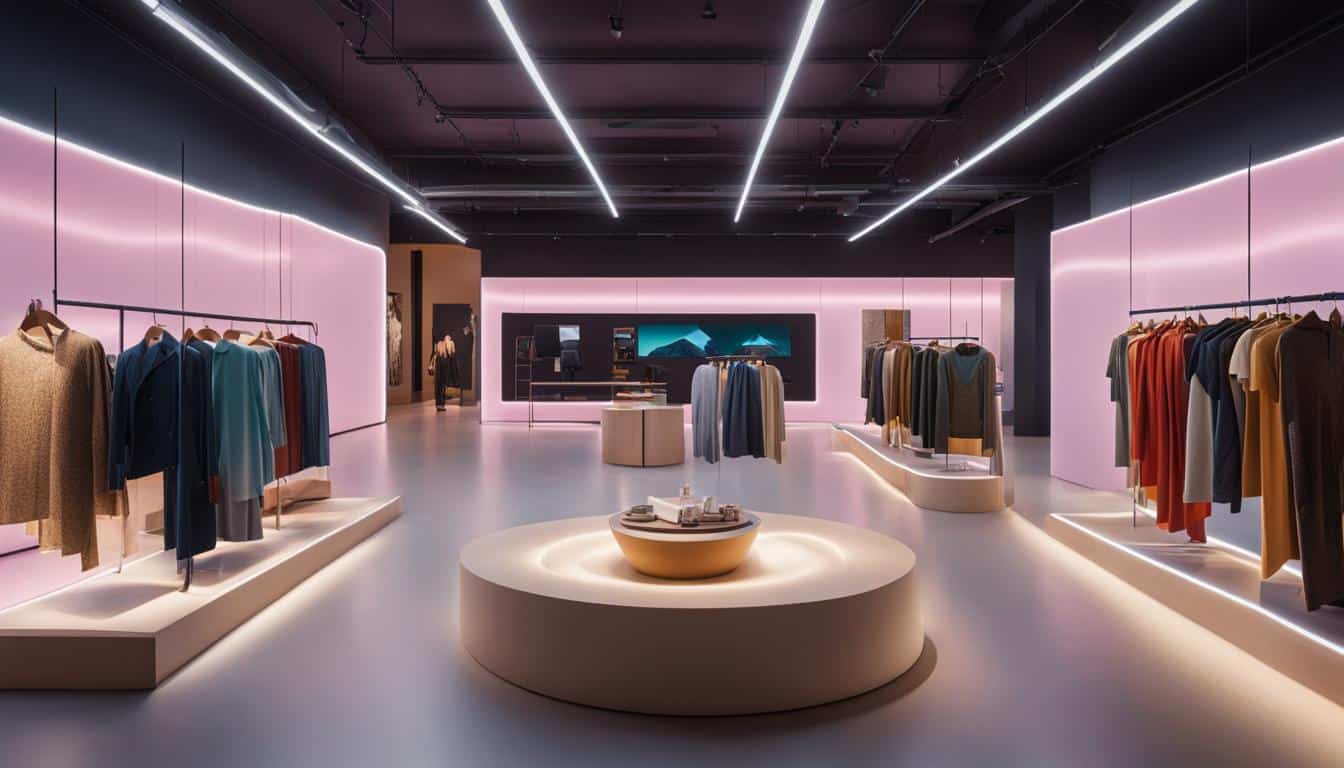


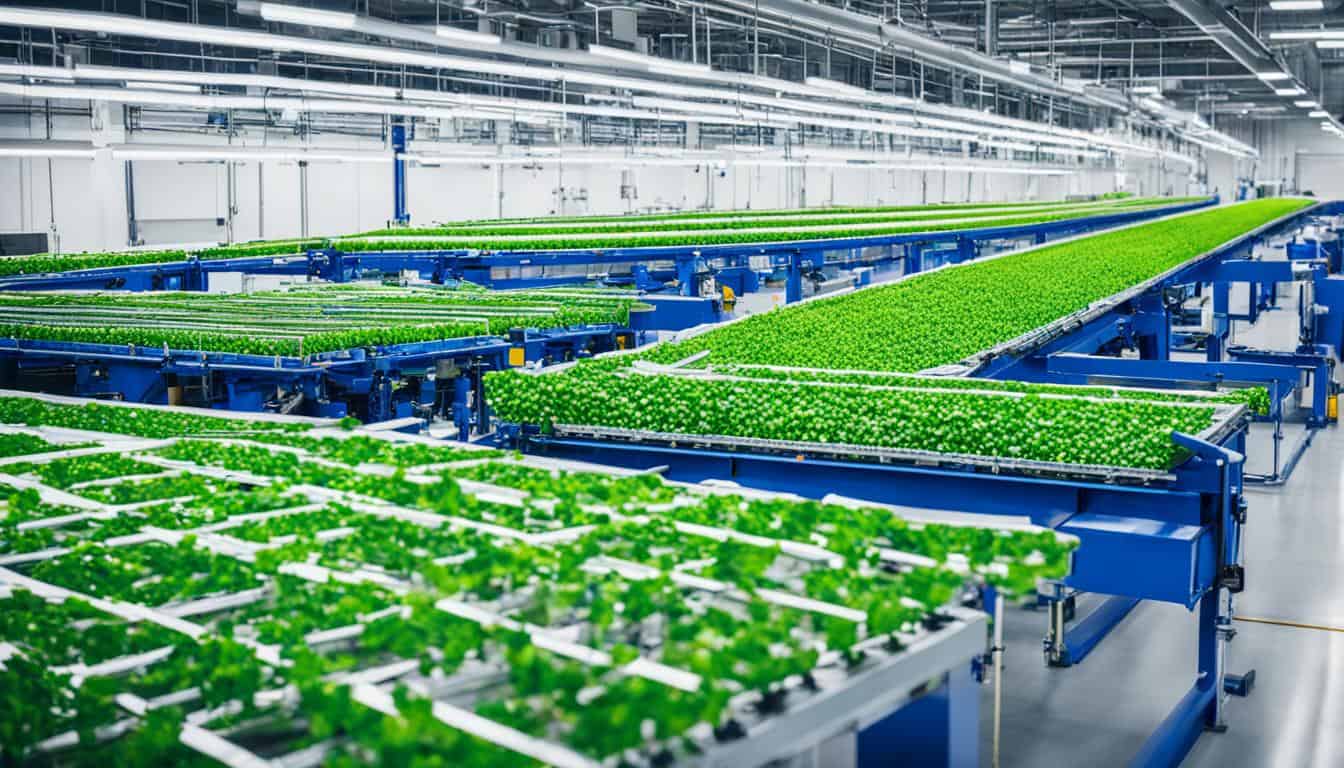
Leave a Reply